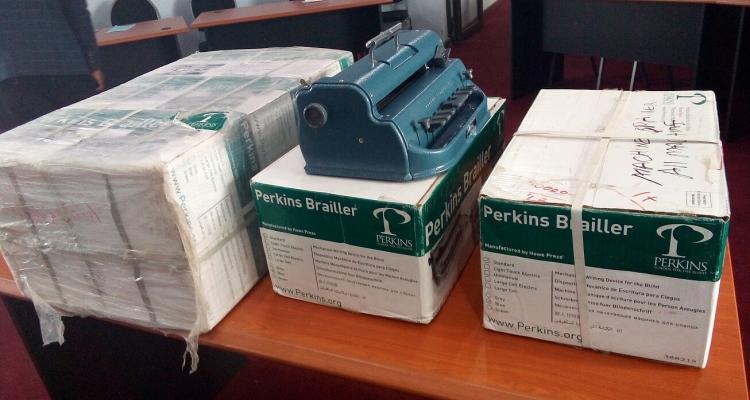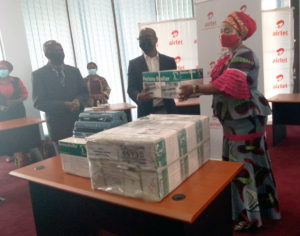
Airtel Malawi has donated assistive devices, including braille machines, worth K15 million to the Ministry of Gender, Community Development and Social Welfare.
The donation was made yesterday at Ministry of Gender offices in Lilongwe.
Donated items include ten Perkins Braille machines, one braille embosser, nine embosser papers, 13 styli, 12 walking canes and 68 braille hand frames with paper, all worth K15 million.
The donated items will be distributed to Blantyre Secondary School, Mulanje Resource Centre, Chilanga Resource centre in Kasungu, Ekwendeni Resource Centre; and the Department of Disability here in Lilongwe.

Speaking during the event, Minister of Gender, Community Development and Social Welfare Patricia Kaliati said assistive technologies open doors, support learning, and increase independence.
She added that increasing access to assistive technology enables special education students to compete, collaborate, and interact with their non-disabled peers.
“While it is not a cure or a magic bullet, assistive technologies level the playing field and help remove barriers associated with the student’s disability. Assistive technology can free students with disabilities from dependence on others and provide greater access to learning,” said Kaliati.
She then ailed Airtel for the donation saying the donated items will benefit a large proportion of learners who were unable to participate in class on an equal basis with their counterparts without disabilities.
She said: “Its impact will expand access to high-quality education for the blind and ensure that they lead a life full of expectations for better life through education. This is truly worth celebrating, and we are looking forward to continued support.”
Airtel Malawi Managing Director Charles Kamoto breaking education barriers remains at the heart of the company’s corporate social responsibility programs.
He added that it is important to ensure that students have access to quality education, and are in a school environment that supports and enables their dreams, regardless of their physical limitations.
“We believe this will lift the students’ capability to compete with the rest of the students in their schools.
“We all have a role to play to continue to break these barriers to education and improve the standards, one school, student and community at a time, and it is my hope that other stakeholders will also come in to support the various health, education and social welfare programs that will help shape Malawi’s future leaders,” said Kamoto.
Salima Primary, which is an inclusive learning facility and supporting the Braille cup competition in partnership with the USAID and the Ministry of Education for over 5 years is part testament of our particular interest in the cause to transform lives in the communities we operate in.














